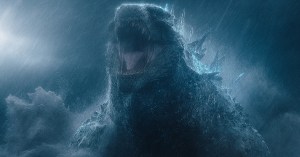Ed Harris’ 10 Best Movies
In this week's Total Recall, we count down the best-reviewed work of the Run All Night star.
A prolific character actor with leading-man chops and four Oscar nominations under his belt, Ed Harris has been entertaining audiences for decades — so when we saw his name in the credits for Run All Night, we knew exactly what we needed to do with this week’s list. From supporting parts to leading roles, from action to comedy to drama, Harris has done just about everything — and done it well. The Tomatometer agrees, giving us a top 10 that bottoms out at an impressive 88 percent. Which of your favorites made the cut? It’s time to find out, Total Recall style!
10. The Abyss (1989) 75%

1989’s underwater epic The Abyss required the construction of the world’s biggest tank of filtered fresh water, as well as newly designed watertight cameras and bleeding-edge special effects work from Industrial Light & Magic. It also required a lot of patience on the part of its cast (including Harris and Mary Elizabeth Mastrantonio, both of whom suffered emotional breakdowns during the grueling six-month shoot) and crew (including director James Cameron, who spent hours at a time under 50 feet of water) — and the studio had its own cross to bear, enduring millions of dollars in cost overruns and weeks of delays. In the end, The Abyss wasn’t as profitable as Cameron’s other epics, only bringing in around $90 million against a $70 million budget, but critics were generally kind, particularly to the longer version that eventually surfaced on home video (Widgett Walls of Needcoffee.com called the theatrical release “an abomination” and wrote, “For God’s sake, make sure you have the director’s cut”).
9. Swing Shift (1984) 87%

It endured an infamously bumpy production period — during which stars Goldie Hawn and Kurt Russell went over Jonathan Demme’s head to arrange edits and reshoots with a different director — but even if Swing Shift didn’t end up fulfilling Demme’s original vision, critics still felt it effectively told the story of a war bride (Hawn) who enters the workforce (and starts an affair) during WWII while her husband (Harris) is overseas. Although more than a few viewers have taken issue with its soft-focused treatment of adultery, the picture’s rich detail and well-written script impressed writers like Filmcritic’s Pete Croatto, who observed, “Sofia Coppola and Wes Anderson could learn a few things watching this. Or maybe they already have.”
8. Sweet Dreams (1985) 90%

Although it was roundly criticized for taking liberties with the facts of its subject’s brief, fascinating life, the Patsy Cline biopic Sweet Dreams makes for a solidly compelling — if at times frustratingly inaccurate — film about the country star’s (played by Jessica Lange) early years, short career, and tragic death, as well as her tumultuous marriage to the unfortunately named Charlie Dick (Harris). Earning Lange a Best Actress nomination for her work, Dreams won praise from critics like Time Out’s Geoff Andrews, who wrote, “The two main performances are excellent: Lange plays the singer without a hint of condescension to her dreams of ‘a big house with yellow roses’, while Harris is persuasively menacing, with an inventively foul mouth.”
7. Glengarry Glen Ross (1992) 95%

You think the dynamic at your company is brutal? Try swimming with the sharks of Glengarry Glen Ross, a pitch-black, deeply profane case study in how quickly an office will disintegrate when a sales team is told that it’s about to enter a competition — and everyone who winds up lower than second place is going to lose his job. The result, as you might expect, is a bile-drenched free-for-all, brilliantly scripted by David Mamet (adapting his own Tony- and Pulitzer-winning play) and brought to painful life by an ace cast that included Harris, Jack Lemmon, Alec Baldwin, Kevin Spacey, Alan Arkin, and Al Pacino (who earned an Academy Award nomination for his work). It isn’t for the faint of heart, and it might provoke a few winces of recognition, but it is, in the words of Filmcritic’s Christopher Null, “An utter masterpiece.”
6. The Truman Show (1998) 94%

Is it science fiction? A comedy? A drama? A psychiatric syndrome? Actually, 1998’s The Truman Show is all of the above. Jim Carrey stars as Truman Burbank, the unwitting star of a wildly popular reality series engineered by a producer named Christof (played by Harris), in which Truman’s life — complete with fake wife, fake friends, and a whole fake town — is lapped up by eager audiences. It didn’t net Carrey the Academy Award that many were anticipating, but The Truman Show has endured over the last 10 years, and predicted the overwhelming popularity of reality television in the years to come. In the words of Hollywood Report Card’s Ross Anthony, “this is clearly one of the decade’s cleverest, most original pictures.”
5. Gone Baby Gone (2007) 94%

Ben Affleck made his directorial debut with this pitch-black thriller, adapted from the Dennis Lehane novel about a private investigator (Casey Affleck) who finds himself mixed up in the exceedingly shady case of a kidnapped girl. As he works with the cops (including Harris and Morgan Freeman) and his girlfriend/partner (Michelle Monaghan), it becomes clear that things are not what they seem. It’s a basic framework that pretty much any filmgoer will be familiar with, but in Affleck’s hands, Gone Baby Gone came alive; as Bruce Westbrook wrote for the Houston Chronicle, “A love-tolerate valentine to the city, it feels more real than the gangster-gorged mean streets of Martin Scorsese’s The Departed, and just as tortured as Clint Eastwood’s Mystic River.”
4. Apollo 13 (1995) 94%

This dramatization of NASA’s aborted 1970 lunar mission combined one of star Tom Hanks’ biggest personal passions — space travel — with Hollywood’s favorite thing: a blockbuster prestige picture. With a cast that featured a number of similarly prolific actors (among them Harris, Kevin Bacon, Bill Paxton, and Gary Sinise), Apollo probably would have made decent money even if it had played fast and loose with the real-life details of the launch, but director Ron Howard and his crew strove for verisimilitude, going so far as to shoot portions of the film in actual zero gravity. The result was a summertime smash that restored some of space travel’s luster for a jaded generation — and made for an exceedingly good filmgoing experience according to most critics, including Roger Ebert, who called it “a powerful story, one of the year’s best films, told with great clarity and remarkable technical detail, and acted without pumped-up histrionics.”
3. Snowpiercer (2014) 94%

A little more than 15 years after he played a powerful man who manipulates lives in service of his own warped version of the greater good for The Truman Show, Harris offered a variation on that theme for Snowpiercer. One of the best-reviewed movies of 2014, it found director and co-writer Bong Joon-ho exploring the outer reaches of bizarro mainstream sci-fi with a dystopian class warfare thriller about the conflict between the unwashed masses (led by Chris Evans) against their pampered overlords (featuring Tilda Swinton acting as Harris’ cartoonishly awful enforcer) on a train hurtling non-stop around the post-apocalyptic ruins of planet Earth. Bracingly original during a summer season crowded with blockbuster fare, Snowpiercer earned raves from the vast majority of critics, including Slate’s Dana Stevens, who wrote that it “seems to have been sent back to us from some distant alternate future where grandiose summer action movies can also be lovingly crafted, thematically ambitious works of art.”
2. Places in the Heart (1984) 90%

Sally Field won a Best Actress Oscar and John Malkovich earned a Best Supporting Actor nomination for their work in this 1984 drama, which tells the story of a widowed woman (Field) who struggles to keep her Texas farm afloat during the Great Depression while her sister (Lindsay Crouse) deals with her crumbling marriage to a carousing husband (Harris). The kind of film whose plot doesn’t seem to cover a lot of ground, but which deals with some unmistakeably weighty themes (in this case racism, adultery, and family commitment), Places in the Heart wasn’t necessarily one of the most exciting pictures of the year, but it was an Academy favorite — Field’s Best Actress win prompted her oft-lampooned “you like me” speech — and a source of admiration for critics like Vincent Canby of the New York Times, who wrote, “Out of the memories of his boyhood in Waxahachie, Tex., during the Great Depression, and within the unlikely tradition of the old-fashioned ‘mortgage’ melodrama, Robert Benton has made one of the best films in years about growing up American.”
1. The Right Stuff (1983) 96%

It’s based on one of America’s most inspiring true stories, it features an ace ensemble cast, and it earned rave reviews from critics — so why did audiences turn their backs on The Right Stuff during its 1983 theatrical run? The fact that it’s more than three hours long probably had something to do with it, but in writer/director Philip Kaufman’s defense, it’s hard to think of a better way to tell the story of NASA’s famed “Mercury Seven.” As astronaut John Glenn, Harris held his own against talented co-stars such as Sam Shepard, Scott Glenn, and Dennis Quaid; together, they helped create the four-time Oscar winner that Combustible Celluloid’s Jeffrey M. Anderson recommended by writing, “Along with Sergio Leone’s Once Upon a Time in America it’s the last great American epic — the kind of film that couldn’t be made today.”
Finally, here’s the trailer for Harris’s directorial debut, Pollock, which also earned him a Best Actor Oscar nomination:





